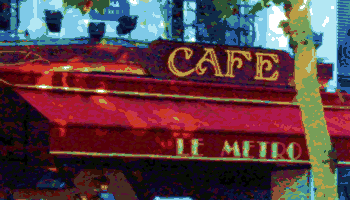ICU
Thanks to Alwin Hawkins and to many other well-wishers. Sister seems to be doing pretty well, at the moment. I, on the other hand, am not. Sick with worry, it seems, is not always a metaphor.
Just getting information is a trial. I've been placed on information rationing. I can generally receive direct answers to direct specific questions, I can get vague emotional reassurances. But what I cannot obtain, perversely, is what (in my unschooled and therefore perhaps irrelevant and certainly, in the opinion of my in-laws, undesired opinion) is most urgently needed here: a succinct review of the salient facts and prevalent theories, updated at appropriate intervals.
This is not (for once) the fault of the Medical Establishment. The blame (if blame there be) lies with a part of the family with whom I guess I'm not going to be speaking much, once this is resolved. They seem to view Medicine as an extension of God's Will. I always looked at it as What Dad, and Uncle Mike, Uncle Fred, Uncle Lionel, Aunt Hazel, and Cousin Tom did at the office when they weren't home playing with the kids. It's an art and a science, nothing more.
This is, I think, a fundamental chasm in our world that is more real and more important than left vs right, or rich vs poor. Just a thought.
One reason I enjoy Alwin's sketches so much is the way they recall my Dad's stories of his residency at County. News Years Eve in the ER: new residents come on duty just in time to let the old ones celebrate. New Year's at County was inclined to be busy. Dad used to recall that his fresh doctorly expertise lasted about five minutes, and after that it was one crisis after another, with the nurses constantly, patiently, knowingly bailing him out.

 Paris is rich in small, specialized shops. They often cluster together, as they did in the Middle Ages. Rue Dante, today, is a center for comics and role playing games. You constantly bump into specialized bookstores. And, of course, the bread store, the pastry store, the vegetable store, the butcher -- all separate.
Paris is rich in small, specialized shops. They often cluster together, as they did in the Middle Ages. Rue Dante, today, is a center for comics and role playing games. You constantly bump into specialized bookstores. And, of course, the bread store, the pastry store, the vegetable store, the butcher -- all separate.








